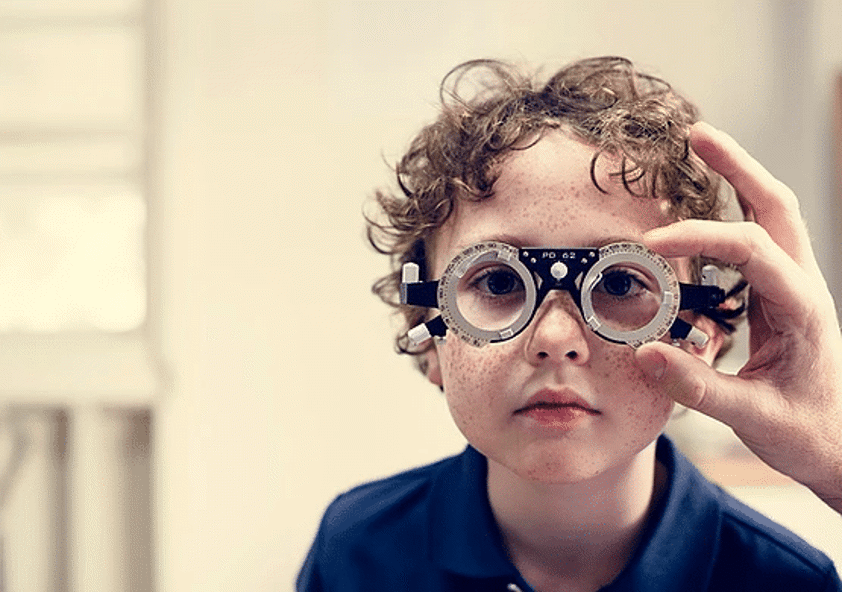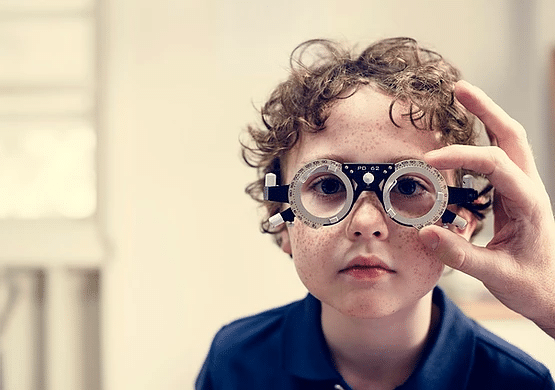Understanding your kids eye health without them talking
Children under the age of 16 and those in full time education until the age of 18 are entitled to a routine annual eye examination covered by the NHS. They are also entitled to an optical voucher for help towards the cost of glasses or contact lenses should they need them.

Being able to see clearly is important for a child’s overall development and helps them to learn and discover the world around them. Most children have excellent eyesight but if there are problems and they are not picked up at an early age, a child may have permanently reduced vision in one or both eyes.
Children do not have to be able to read or talk to have their eyes examined, but it is important for an Optician to check your kids eye regularly.
Things to look out for:
Babies after 6 weeks old
- Cannot follow something with their eyes
- Respond to facial gestures
- Does not seem to focus on you properly
- Eyes appear to wander
Toddlers and young
- Clumsiness or poor hand to eye coordination
- One eye that turns in or out
- Eye rubbing frequently when not tired
- Watery eyes
- Screw up their eyes when they watch TV
- Excessive blinking
School age children
- Avoidance of reading, writing and drawing
- Sitting very close to the TV or holding books or objects close to their face
- Behavioral or concentration problems at school
- Complaints of headaches, tired eyes, blurred or double vision
If there is any family history of needing glasses at a young age, squint or lazy eye or a concern about your child’s sight, contact an optometrist for advice.
Related articles





